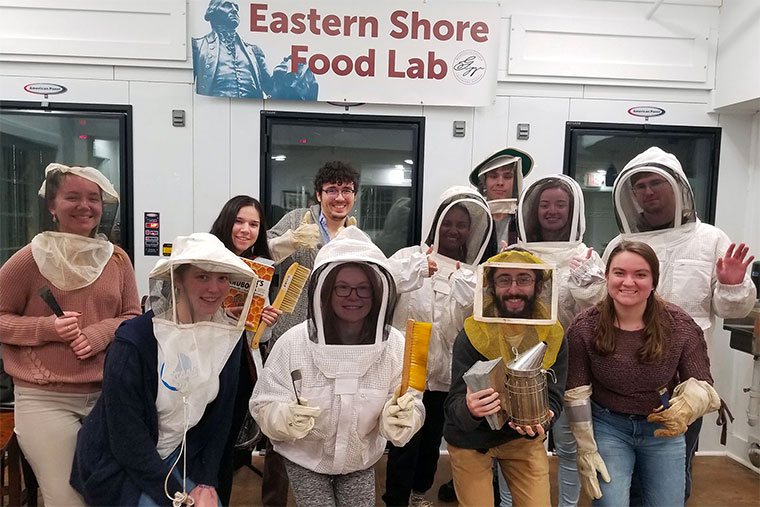Abuzz in the Lab
February 26, 2020
A spring Beekeeping 101 through the Food Initiative offers a bee's-eye view into the inextricable relationship between human health and environmental resilience.
In a special series of classes, students from diverse academic backgrounds gather around a shared interest in beekeeping and pollinators. Taught by Shane Brill '03 M'11, topics covered include bee anatomy and nutrition, apiary establishment, seasonal management, catching wild swarms, integrated pest management, and working with hive products.
 Dismantling a hive to understand why it failed over winter.
Dismantling a hive to understand why it failed over winter.
This co-curricular program prepares students to establish their own hives and to promote the health of the colonies at the campus garden and River and Field Campus outpost. In addition to honey bees, students learn about pollinators and important foraging plants for human food. And true to the Food Initiative educational approach, they learn by doing.
Students applied their knowledge of colony behavior to dismantle a failed colony and deduce why it didn't make it through winter (a late swarm caused by overcrowding). They practiced using fire in a smoker to produce cool plumes to precede their colony inspection route. They're slated to learn how to extract and bottle raw honey, and understand how to maximize the health benefits of the food resource. Candle making is part of their curriculum, as is mead making and almond milk, foods that depend upon the services of bees and use traditional human food processing technologies to create. Assembling and painting hive furniture is also on the syllabus, which provides an invaluable experience for future work in beekeeping.
 Learning how to use a smoker for hive inspections
Learning how to use a smoker for hive inspections
Students in the course serve as ambassadors to the general public about the relationship between pollinators and food production. And they're on standby to capture wild swarms that might be spotted around campus.
The central concept behind the course is that people can collaborate with wildlife to support natural processes that improve a quality of life for all living creatures.
Contact Shane Brill to learn more about the beekeeping program.
